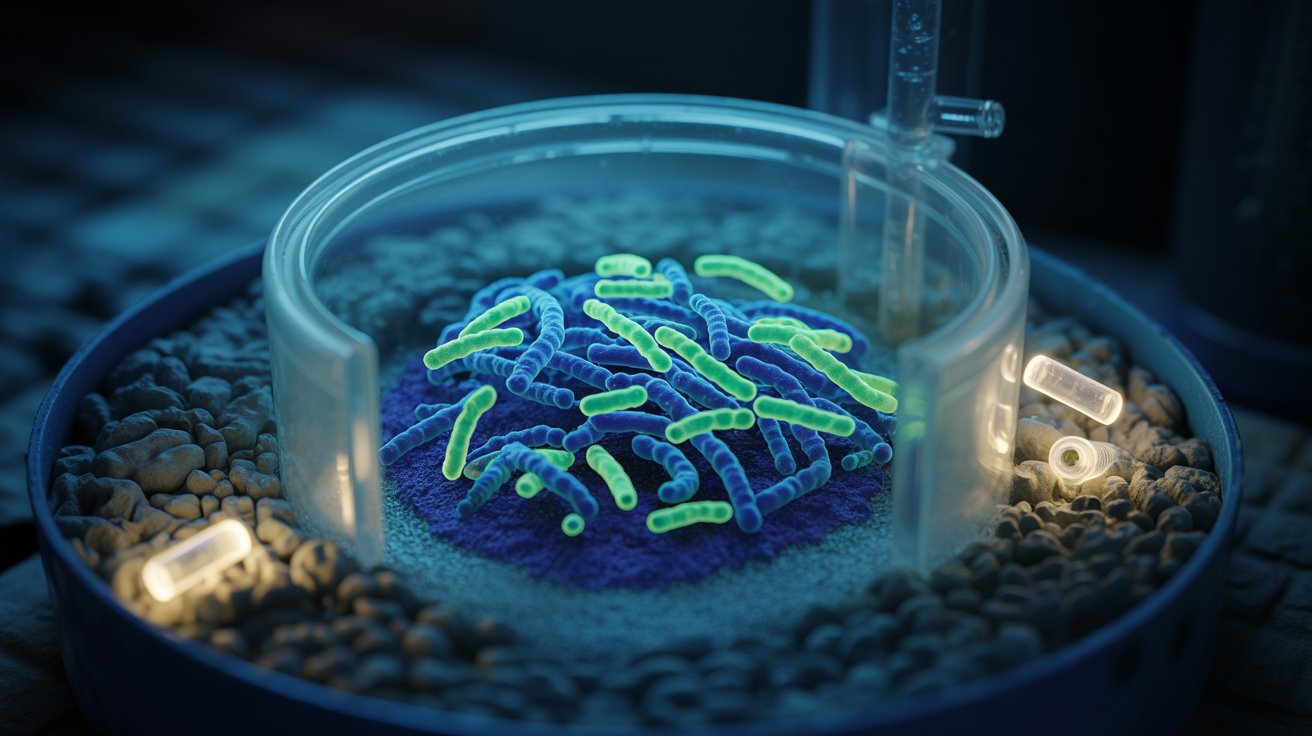Have you ever wondered what exactly is in the products you use around your home, especially when it comes to maintaining essential systems like your septic tank? You might be familiar with Septifix, a popular product designed to help keep septic systems in peak condition. But there’s one question on your mind: Does Septifix contain bleach? Today, we’re going to shed light on this question and explore everything you need to know about Septifix and its composition.

Understanding Septifix
To get to the heart of whether Septifix contains bleach, we must first look at what Septifix is meant to do. Septifix is formulated to clean and maintain septic systems efficiently. By adding one Septifix tablet into your toilet each month, it’s claimed to improve the longevity of your septic system, reduce the need for maintenance, and prevent unpleasant odors. Let’s explore how it achieves these, and whether bleach plays any role in this process.
The Composition of Septifix
Septifix functions differently than typical household cleaners. It’s important to understand this product’s composition and how it benefits your septic system. These tablets are primarily composed of bacteria cultures, oxygenation compounds, and pH balancing substances designed to naturally break down waste materials. But why no bleach?
Why Bleach Isn’t Part of Septifix
Bleach, known for its disinfecting properties, acts as a harsh chemical that can kill both harmful and beneficial bacteria. In a septic system, maintaining a healthy balance of bacteria is crucial. These bacteria are responsible for breaking down solid waste. Introducing bleach to the system can disrupt this balance, sometimes leading to system failure or inefficiencies. Septifix aims to enhance bacterial activity rather than hinder it, which is why bleach is left out of its formulation.
Advantages of Avoiding Bleach
Understanding why Septifix does not contain bleach helps underscore its key benefits. Promoting a chemical-free approach, as seen in Septifix’s microbial formulas, is advantageous for various reasons.
Protects the Essential Bacteria
As mentioned earlier, your septic tank relies on healthy bacteria to break down waste. Bleach’s killing power does not differentiate between harmful bacteria and essential ones. Therefore, using products with bleach on your septic system can degrade its efficiency. Septifix’s formula is beneficial as it preserves the bacteria needed for the system’s proper function.
Environmental Considerations
Another reason to avoid bleach pertains to environmental impact. Bleach and other chemical-based products can leach into surrounding soil and water supplies. Septifix’s components, on the other hand, are designed to remain environmentally friendly, thus reducing pollution and chemical waste.
Health and Safety
Using products that avoid bleach can also be safer for personal health within your home. Handling bleach can pose risks due to potential skin irritation and inhalation hazards. By using Septifix, you reduce these personal health risks and create a safer home environment.


Common Misconceptions About Septifix
Several myths and misconceptions may lead you to wonder about the presence of bleach in Septifix. Let’s address some of these to help set the record straight.
The Smell of Clean
A common assumption is that if a product leaves a fresh scent, it must contain bleach or similar chemicals. However, Septifix generates a clean smell by breaking down foul-smelling chemical compounds rather than masking them with strong scents.
Efficacy Concerns
Some are skeptical of chemical-free products’ effectiveness. It’s important to note that the power of Septifix lies in its biological and enzymatic composition, which naturally breaks down waste substances without the need for harsh chemicals like bleach.
How to Use Septifix Effectively
Using Septifix for optimal results involves a simple and straightforward process. Let’s walk through what you need to know to maintain your septic system using this product.
Application Process
Every month, simply drop a Septifix tablet into your toilet and flush twice. This allows the tablet to reach the septic tank efficiently. The formula will then start releasing oxygen and millions of bacteria designed to break down waste.
Regular Maintenance
To harness the full benefits of Septifix, consistency is key. Regular monthly use ensures that your septic system remains in good condition, helping prevent costly repairs and unpleasant buildup. This routine, when combined with mindful wastewater practices, can significantly extend your system’s life.
Monitor Your System
While Septifix enhances system efficiency, it is still wise to monitor the function of your septic tank regularly. Familiarize yourself with warning signs of potential issues, such as unusual odors or slow draining. Addressing issues promptly alongside using products like Septifix provides the best results.
Comparing Septifix to Other Products
With the reassurance that Septifix does not contain bleach, you might wonder how it compares to other septic maintenance products available.
Septifix vs. Bleach-Based Products
Bleach-based septic products tend to address only a narrow range of maintenance needs and may endanger critical bacteria. By contrast, Septifix offers a holistic approach that not only supports existing bacterial colonies but introduces factors that help them thrive. This synergy is an advantage over straightforward bleaching agents.
Septifix vs. Enzyme-Only Solutions
Enzymes are another common component in septic care solutions. While enzymes are valuable for breaking down waste, Septifix combines enzymes with additional microorganisms and oxygenation components, which can encourage more comprehensive waste breakdown and system cleaning than enzyme-only options.
Tackling Tough Stains Without Bleach
You may also be considering how to tackle tough stains around your home without resorting to bleach. Here’s how you can maintain cleanliness without compromising safety or septic health.
Alternatives to Bleach Cleaning
Natural cleaners like vinegar, baking soda, and lemon juice are excellent for various cleaning tasks. They can tackle stains, deodorize, and disinfect with fewer harsh chemicals than bleach. These alternatives are safer for your septic system and are environmentally friendly.
Conclusion
Your initial question—does Septifix contain bleach?—leads to significant insights into the importance of product choices regarding septic health. By understanding that Septifix eschews bleach in favor of biological agents, you are empowered to make informed decisions that enhance your system’s health and eco-friendliness. Not only does this choice safeguard your septic system’s function, but it also contributes to personal health, safety, and environmental sustainability. Keep these details in mind when considering the best options for your home and system care requirements.


